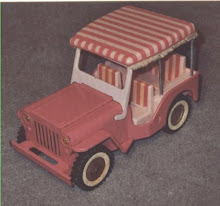Why Should I Stand Up?
Featuring:
Colorblind James: vocals, guitar, vibes, Casio keyboardJohn Ebert: trombone
Ken Frank: acoustic bass
Phil Marshall: electric guitar
Dave McIntire: clarinet
Jimmy McAvaney: drums w/ the snare turned off
This is the first track on the Why Should I Stand Up album. CBJ's sophomore effort.
I’ve just recently began listening to the Why Should I Stand Up album after leaving it alone for many years. I’ve left most of the CBJ catalogue alone as it sometimes painful for me to listen to. I must give credit to my son Roy for rekindling my interest. Along with Nirvana, Led Zeppelin, the Melvins and a host of other rock bands, Roy discovered and frequently puts on Rockin’ As Fast As I Can. Most of our listening together is done in the car ride from home to school at 7:30 in the morning. Occasionally he’ll ask me to “drive around” a bit to squeak out one or two more songs without making him late to his first class. His playlists can be really amusing and exciting.
I’ve just recently began listening to the Why Should I Stand Up album after leaving it alone for many years. I’ve left most of the CBJ catalogue alone as it sometimes painful for me to listen to. I must give credit to my son Roy for rekindling my interest. Along with Nirvana, Led Zeppelin, the Melvins and a host of other rock bands, Roy discovered and frequently puts on Rockin’ As Fast As I Can. Most of our listening together is done in the car ride from home to school at 7:30 in the morning. Occasionally he’ll ask me to “drive around” a bit to squeak out one or two more songs without making him late to his first class. His playlists can be really amusing and exciting.
One particular morning I played Why Should I Stand Up for
him and I was spellbound. I was struck
by what a great song and a great recording it is. The Sophisticated/Havoc Theme 45
notwithstanding, this was the first realization of Chuck’s dream of making a
place for trombone and clarinet at our musical table. As the song continued I heard and felt and
relived all my years with CBJ: the persistent rumbling drums and insistent
bass, my splattering rhythm guitar, and the lines that bounced back and forth
from the clarinet to guitar and to the organ.
During the final moments when the music is churning underneath that
beautiful repeated melody, I completely welled up. I hadn’t cried to CBJ in years.
As I recall we attempted basic tracks several times before deciding to use a click track. This didn't agree with bassist Ken Frank who cursed the effort and referred to the click as Satan. I don't remem ber if we ended up using the click track basics or if we abandoned it. The band does sound relentless and precise IMHO.
